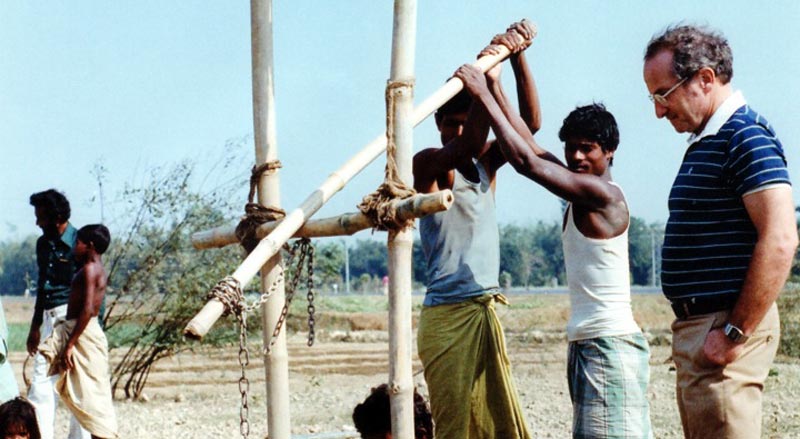
Image credit: paulpolak.com.
I believe that ending extreme poverty can have a greater positive impact on the environment than just about anything else we can do.
If 1 billion or more of the very poor people on the planet could move out of poverty, world population would probably stabilize at 7 billion instead of the 9 billion experts predict. Just about all of the 3 billion new people expected on earth will be born in families that go hungry two or three months a year and feel the need for big families to survive economically. When they earn enough to move into the middle class, the perceived survival value of big families usually falls away.
What impact do large poor families have on the environment? Although they directly consume much less than rich people, their carbon footprint is surprisingly high.
In 2006, the World Food Program distributed 4 million metric tons of food to 87.8 million poor people in 78 countries. Consider the carbon footprint of growing 4 million tons of food, transporting it to 78 countries, and transporting, housing and feeding the army of experts who supervise its distribution. Now add the carbon footprint required to regularly distribute food and water to regions in chronic deficit, like China’s Yellow River Basin and India’s Deccan Plateau. In Mumbai alone, 79 water tankers made 222 trips daily this year to deliver water to poor people during the dry season. Add to this the carbon footprint of the $100 billion we spend each year in futile massive development projects, and a picture begins to emerge on the impact of poverty on carbon emissions and climate change.
But the impact of poverty on the environment goes far beyond climate change.
Poverty and Loss of Biodiversity are Joined at the Hip
What happens to many endangered species of animals? Poor people who live next to the nature preserves in the world’s 21 key critical biodiversity regions hunt them and eat them. Providing attractive income-generating alternatives to hunting and slash and burn agriculture for poor people living next to nature preserves is one of the most successful strategies for maintaining the biodiversity of the planet.
A Root Cause of War and Conflict
Poverty is an obvious root cause of conflicts ranging from the Chinese revolution to the genocide in Rwanda to the civil war in Sudan. War in turn produces profound environmental degradation and renewed cycles of poverty and conflict. Helping a billion extremely poor people move out of poverty would decrease the incidence of conflict and war and help preserve the environmental balance of the planet.
Because of its central role in population growth, climate change, loss of biodiversity and conflict, implementing practical solutions to extreme poverty is probably the first place to start if you want to make a significant contribution to preserving the environmental balance of the planet.
Practical solutions to extreme poverty already exist. If organizations like IDE and the Grameen Bank have helped some 40 million extremely poor people move out of poverty, what’s stopping us from scaling up the market driven approaches that can do the same for a billion people?

